"""
Implementation of the reader for XYZ files using OpenBabel
"""
import os
import sys
import threading
import time
import logging
from pathlib import Path
import re
from openbabel import openbabel
import molsystem
from read_structure_step.formats.registries import register_reader
from .find_mopac import find_mopac # noqa: F401
logger = logging.getLogger("read_structure_step.read_structure")
metadata = {
"CP": "constant pressure heat capacity#experiment",
"CPR": "constant pressure heat capacity,reference#experiment",
"D": "dipole moment#experiment",
"DR": "dipole moment,reference#experiment",
"H": "enthalpy of formation#experiment",
"HR": "enthalpy of formation,reference#experiment",
"S": "entropy#experiment",
"SR": "entropy,reference#experiment",
"I": "ionization energy#experiment",
"IE": "ionization energy#experiment",
"IA": "ionization energy#experiment",
"IR": "ionization energy,reference#experiment",
"GR": "geometry,reference#experiment",
}
multiplicities = {
"SINGLET": 1,
"DOUBLET": 2,
"TRIPLET": 3,
"QUARTET": 4,
"QUINTET": 5,
"SEXTET": 6,
"SEPTET": 7,
"OCTET": 8,
"NONET": 9,
}
[docs]
class OutputGrabber(object):
"""Class used to grab standard output or another stream.
see https://stackoverflow.com/questions/24277488/in-python-how-to-capture-the-stdout-from-a-c-shared-library-to-a-variable/29834357#29834357 # noqa: E501
"""
escape_char = "\b"
def __init__(self, stream=None, threaded=False):
self.origstream = stream
self.threaded = threaded
if self.origstream is None:
self.origstream = sys.stdout
self.origstreamfd = self.origstream.fileno()
self.capturedtext = ""
# Create a pipe so the stream can be captured:
self.pipe_out, self.pipe_in = os.pipe()
def __enter__(self):
self.start()
return self
def __exit__(self, type, value, traceback):
self.stop()
[docs]
def start(self):
"""
Start capturing the stream data.
"""
self.capturedtext = ""
# Save a copy of the stream:
self.streamfd = os.dup(self.origstreamfd)
# Replace the original stream with our write pipe:
os.dup2(self.pipe_in, self.origstreamfd)
if self.threaded:
# Start thread that will read the stream:
self.workerThread = threading.Thread(target=self.readOutput)
self.workerThread.start()
# Make sure that the thread is running and os.read() has executed:
time.sleep(0.01)
[docs]
def stop(self):
"""
Stop capturing the stream data and save the text in `capturedtext`.
"""
# Print the escape character to make the readOutput method stop:
self.origstream.write(self.escape_char)
# Flush the stream to make sure all our data goes in before
# the escape character:
self.origstream.flush()
if self.threaded:
# wait until the thread finishes so we are sure that
# we have until the last character:
self.workerThread.join()
else:
self.readOutput()
# Close the pipe:
os.close(self.pipe_in)
os.close(self.pipe_out)
# Restore the original stream:
os.dup2(self.streamfd, self.origstreamfd)
# Close the duplicate stream:
os.close(self.streamfd)
[docs]
def readOutput(self):
"""
Read the stream data (one byte at a time)
and save the text in `capturedtext`.
"""
while True:
char = os.read(self.pipe_out, 1).decode(self.origstream.encoding)
if not char or self.escape_char in char:
break
self.capturedtext += char
def _find_charge(regex, input_file):
text = re.search(regex, input_file)
if text is not None:
return text.group(2)
def _find_standard(regex, input_file):
text = re.search(regex, input_file)
if text is not None:
return text.group(0)
def _find_field(regex, input_file):
text = re.search(regex, input_file)
if text is not None:
return (text.group(1), text.group(4), text.group(7))
def _find_open(regex, input_file):
text = re.search(regex, input_file)
if text is not None:
return (text.group(2), text.group(3))
extras = {
"structure": {
"net_charge": {
"regex": r"(CHARGE=)([\+\-]?\d)",
"find": _find_charge,
"value": None,
},
"field": {
"regex": (
r"FIELD=\(([-+]?\d+(\.\d+(e[-+]\d+)?)?)\,([-+]?\d+"
r"(\.\d+(e[-+]\d+)?)?)\,([-+]?\d+(\.\d+(e[-+]\d+)?"
r")?)\)"
),
"find": _find_field,
"value": None,
},
"open": {
"regex": r"(OPEN\()(\d+)\,\s*(\d+)\)",
"find": _find_open,
"value": None,
},
},
}
obabel_error_identifiers = ["0 molecules converted"]
@register_reader(".mop")
def load_mop(
file_name,
configuration,
extension=".mop",
add_hydrogens=True,
system_db=None,
system=None,
indices="1:end",
subsequent_as_configurations=False,
system_name="Canonical SMILES",
configuration_name="sequential",
printer=None,
references=None,
bibliography=None,
save_data=True,
step=None,
**kwargs,
):
"""Read a MOPAC input file.
Parameters
----------
file_name : str or Path
The path to the file, as either a string or Path.
configuration : molsystem.Configuration
The configuration to put the imported structure into.
We'll use OpenBabel to read the file; however, OpenBabel is somewhat limited, so
we'll first preprocess the file to extract extra data and also to fit it to the
format that OpenBabel can handle.
"""
# Get the text in the file
if isinstance(file_name, str):
path = Path(file_name)
else:
path = file_name
path.expanduser().resolve()
lines = iter(path.read_text().splitlines())
# Work through the file capturing data and also reformatting as needed.
text = []
# The file may have comments at the beginning or interspersed. The first non-comment
# line is keywords, followed by two lines of description. Conventionally the first
# line of description is a title.
#
# The keyword line may be extended in one of two ways. If there is an '&' keyword
# in the first line of keywords, the second line contains keywords rather than
# description. If that second line contains an '&', then the third line is also
# taken as keywords, leaving no description lines.
#
# If the keyword line contains a '+' keyword, the next line is also considered to be
# keywords, but in this case the number of description lines following the keyword
# lines is unchanged.
#
# Finally, the MOPAC test data usually has three comment lines to start, with a
# single number on the second line, which is the heat of formation calculated by
# MOPAC. If this format is found the HOF is captured.
run_mopac = False
keywords = []
description_lines = []
geometry_lines = []
raw_geometry_lines = []
line_no = 0
comment_lines = 0
n_description_lines = 2
section = "keywords"
for line in lines:
line_no += 1
line = line.strip()
if len(line) > 0 and line[0] == "*":
comment_lines += 1
else:
if section == "keywords":
tmp = line.split()
keywords.extend(tmp)
if "&" in tmp:
n_description_lines -= 1
elif "+" in tmp:
pass
else:
if n_description_lines > 0:
section = "description"
else:
section = "geometry"
elif section == "description":
description_lines.append(line)
n_description_lines -= 1
if n_description_lines == 0:
section = "geometry"
elif section == "geometry":
if line == "":
break
raw_geometry_lines.append(line)
# The element may have () after...
line = re.sub(r"\(.*\)", "", line)
# Look for dummy atoms
if line.split()[0] in ("X", "XX", "99"):
run_mopac = True
geometry_lines.append(line)
# Sort out if the geometry looks like internals. Note that there may be a charge at
# the end of each line.
n_atoms = len(geometry_lines)
# Need to know if the first atoms coordinates are zero ... which are the default
# for missing values. Anyway, put default values into first line, treating as
# Cartesians for time being.
x0 = y0 = z0 = 0.0
tmp = geometry_lines[0].split()
el0 = tmp[0]
if len(tmp) >= 6:
z0 = float(tmp[5])
if len(tmp) >= 4:
y0 = float(tmp[3])
if len(tmp) >= 2:
x0 = float(tmp[1])
geometry_lines[0] = f"{el0} {x0} 0 {y0} 0 {z0} 0"
if n_atoms == 1:
internals = False
elif n_atoms > 2:
internals = None
for index, line in enumerate(geometry_lines[2:], 2):
tmp = line.split()
if len(tmp) > 7:
if len(tmp) >= 9:
if index == 2:
if "0" in tmp[7:9]:
geometry_lines[index] = " ".join(tmp[0:7])
elif "0" in tmp[7:10]:
geometry_lines[index] = " ".join(tmp[0:7])
else:
internals = True
else:
if internals is None:
internals = False
if internals is None:
internals = True
else:
tmp = geometry_lines[1].split()
if len(tmp) > 7:
if tmp[7] == 1 or tmp[7] == 0:
internals = True
else:
internals = False
else:
internals = False
if n_atoms > 1:
tmp = geometry_lines[1].split()
x = y = z = 0.0
el1 = tmp[0]
if len(tmp) >= 6:
z = float(tmp[5])
if len(tmp) >= 4:
y = float(tmp[3])
if len(tmp) >= 2:
x = float(tmp[1])
if internals:
geometry_lines[1] = f"{el1} {x} 1 {y} 0 {z} 0 1 0 0"
else:
geometry_lines[1] = f"{el1} {x} 1 {y} 0 {z} 0"
if internals:
# Add connectivity to first atom since OpenBabel requires
geometry_lines[0] += " 0 0 0"
else:
# In Cartesians, OpenBabel requires 7 items per line
for i in range(len(geometry_lines)):
tmp = geometry_lines[i].split()
el = tmp[0]
x = y = z = 0.0
if len(tmp) >= 6:
z = float(tmp[5])
if len(tmp) >= 4:
y = float(tmp[3])
if len(tmp) >= 2:
x = float(tmp[1])
geometry_lines[i] = f"{el} {x} 1 {y} 0 {z} 0"
# Reassemble an input file.
text = ["0SCF", "title", "description"]
text.extend(geometry_lines)
# An empty line denotes end of input, but OpenBabel requires a blank in the line
text.append(" ")
if internals:
logger.info(f"Using internal coordinates for {file_name}")
else:
logger.info(f"Using Cartesians coordinates for {file_name}")
input_data = "\n".join(text)
logger.info(f"Input data:\n\n{input_data}\n")
# Now try to convert using OpenBabel
out = OutputGrabber(sys.stderr)
with out:
obConversion = openbabel.OBConversion()
if internals:
obConversion.SetInFormat("mopin")
else:
obConversion.SetInFormat("mopcrt")
obMol = openbabel.OBMol()
try:
if run_mopac:
raise RuntimeError("Forcing use of MOPAC output")
success = obConversion.ReadString(obMol, input_data)
if not success:
raise RuntimeError("obConversion failed")
except Exception:
logger.info("**** falling back to MOPAC")
# Try using a MOPAC output file instead. Works for e.g. mixed coordinates
# Create an input file
text = ["0SCF", "title", "description"]
text.extend(raw_geometry_lines)
# An empty line denotes end of input
text.append(" ")
files = {"mopac.dat": "\n".join(text)}
logger.debug(f"MOPAC input file:\n\n{files['mopac.dat']}\n")
result = step.run_mopac(files=files, return_files=["mopac.out"])
if result["mopac.out"]["data"] is None:
raise RuntimeError("MOPAC failed: " + result["mopac.out"]["exception"])
text = result["mopac.out"]["data"]
logger.debug(f"MOPAC output:\n\n{text}\n")
obConversion.SetInFormat("mopout")
success = obConversion.ReadString(obMol, text)
if not success:
raise RuntimeError("Could not process MOPAC file")
if add_hydrogens:
obMol.AddHydrogens()
configuration.from_OBMol(obMol)
# Check any stderr information from obabel.
if out.capturedtext != "":
tmp = out.capturedtext
if "Failed to kekulize aromatic bonds in OBMol::PerceiveBondOrders" not in tmp:
logger.warning(tmp)
# Record the charge, and the spin state
charge = 0
for keyword in keywords:
if "CHARGE=" in keyword:
charge = int(float(keyword.split("=")[1].strip()))
break
configuration.charge = charge
n_active_electrons = None
n_active_orbitals = None
multiplicity = None
for keyword in keywords:
if keyword in multiplicities:
multiplicity = multiplicities[keyword]
elif "MS=" in keyword:
try:
multiplicity = int(2 * float(keyword.split("=")[1].strip())) + 1
except Exception:
ValueError(f"Error with multiplicity: '{keyword}'")
elif keyword == "BIRADICAL":
multiplicity = 1
n_active_electrons = 2
n_active_orbitals = 2
elif "OPEN(" in keyword or "OPEN=(" in keyword:
tmp = keyword.split("(")[1].rstrip(")")
n_active_electrons, n_active_orbitals = tmp.split(",")
elif "ROOT=" in keyword:
tmp = keyword.split("=")
configuration.state = tmp[1]
if multiplicity is None:
n_electrons = sum(configuration.atoms.atomic_numbers) - charge
if n_electrons % 2 == 0:
multiplicity = 1
else:
multiplicity = 2
configuration.spin_multiplicity = multiplicity
if n_active_electrons is not None:
configuration.n_active_electrons = n_active_electrons
configuration.n_active_orbitals = n_active_orbitals
logger.info(f"{charge=} {multiplicity=}")
logger.info(
f"open({n_active_electrons},{n_active_orbitals}) {configuration.state=}"
)
# Set the system name
if system_name is not None and system_name != "":
lower_name = system_name.lower()
if lower_name == "title":
if len(description_lines) > 0:
system.name = description_lines[0]
else:
system.name = str(path)
elif "canonical smiles" in lower_name:
system.name = configuration.canonical_smiles
elif "smiles" in lower_name:
system.name = configuration.smiles
elif "iupac" in lower_name:
system.name = configuration.PC_iupac_name
elif "inchikey" in lower_name:
system.name = configuration.inchikey
elif "inchi" in lower_name:
system.name = configuration.inchi
elif "formula" in lower_name:
system.name = configuration.formula[0]
else:
system.name = system_name
# And the configuration name
if configuration_name is not None and configuration_name != "":
lower_name = configuration_name.lower()
if lower_name == "title":
configuration.name = obMol.GetTitle()
elif "canonical smiles" in lower_name:
configuration.name = configuration.canonical_smiles
elif "smiles" in lower_name:
configuration.name = configuration.smiles
elif "iupac" in lower_name:
configuration.name = configuration.PC_iupac_name
elif "inchikey" in lower_name:
configuration.name = configuration.inchikey
elif "inchi" in lower_name:
configuration.name = configuration.inchi
elif lower_name == "sequential":
configuration.name = "1"
elif "formula" in lower_name:
configuration.name = configuration.formula[0]
else:
configuration.name = configuration_name
if references:
# Add the citations for Open Babel
citations = molsystem.openbabel_citations()
for i, citation in enumerate(citations, start=1):
references.cite(
raw=citation,
alias=f"openbabel_{i}",
module="read_structure_step",
level=1,
note=f"The principal citation #{i} for OpenBabel.",
)
return [configuration]

